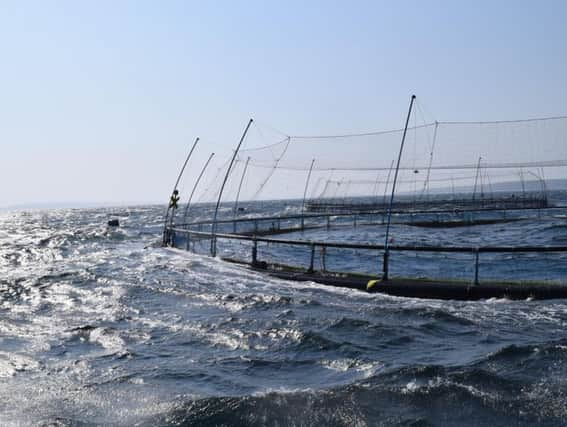Scots-Canadian research team to boost sustainable fishing


The research consortium – led by Cooke Aquaculture, one of the world’s largest salmon producers, and the Scottish Association for Marine Science (SAMS) – is exploring how to measure sulphide levels more quickly, accurately and cost effectively at six fish farms in Scotland and Canada.
Limitations of current monitoring methods have restricted the deployment of fish farms in areas such as Orkney and Shetland.
Advertisement
Hide AdAdvertisement
Hide AdSulphide levels on the seabed, which can rise due to fish waste deposits or uneaten feed, are widely considered to be a reliable indicator of sediment becoming too enriched to sustain organisms.
The consortium is backed by funding from the Scottish Aquaculture Innovation Centre, with support from Nova Scotia-based Dalhousie University, the University of the Highlands and Islands and Fisheries and Oceans Canada. It is also consulting with the Scottish Environment Protection Agency to ensure the sustainability of its practices.
SAMS ecologist Clive Fox said the new tool “could go a long way towards informing future site selection and significantly cut the amount of time and resource currently required to analyse samples and get results”.